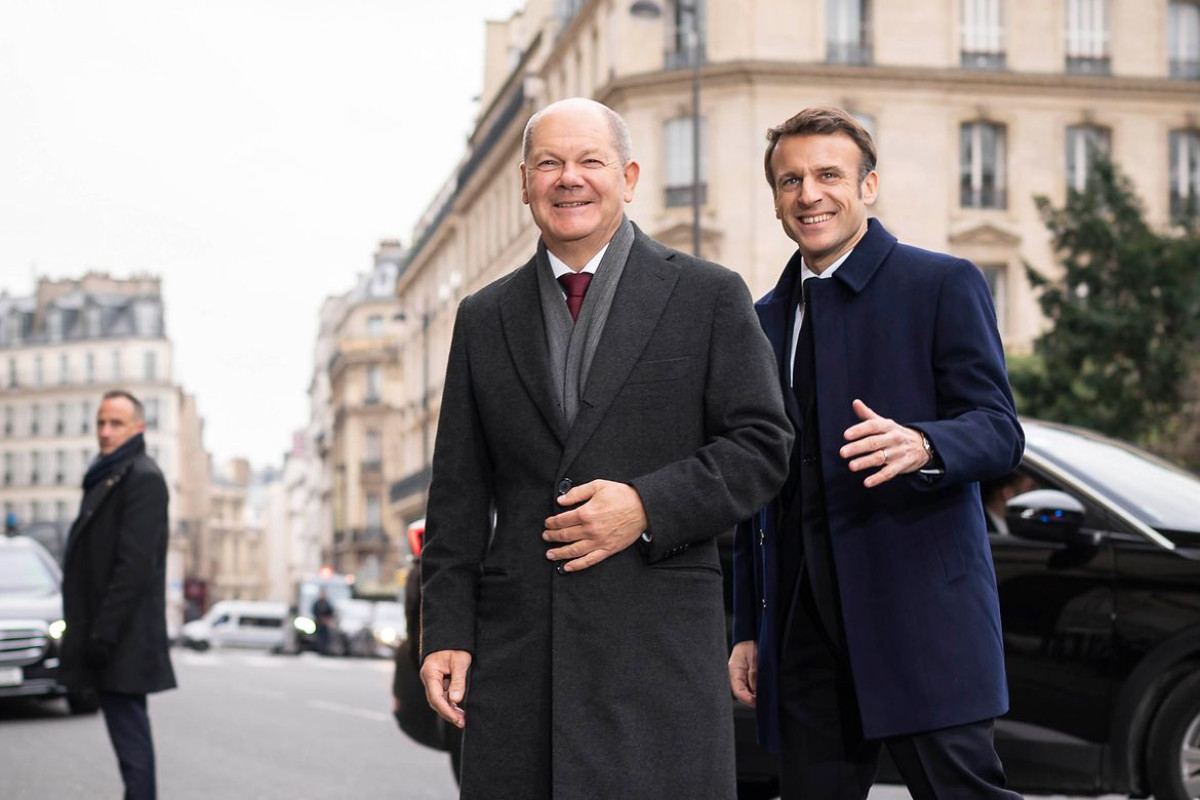Climate and energy in France's snap elections – a view from Germany
If you are a journalist covering the French elections, please make sure to check out CLEW’s expert database, including French climate and energy experts and/or join our network to connect with French colleagues.
What are your expectations for the French elections?
Frankly, I was very surprised and pretty much at a loss – not unlike the best part of the French political class. Looking at the chaotic infighting among the right and left political fringes in French politics that was set off by president Macron’s unexpected snap election announcement, I think France (and Europe) can be glad that there is simply not enough time to turn this into a long and loud election campaign. Macron’s move to dissolve parliament in reaction to the far-right Rassemblement National’s (RN) gains in the European elections has widely been criticised as a risky gamble that could throw his country and the entire EU in turmoil.
As an analyst of French politics recently told me, Macron would likely have been under great pressure to do so anyway after the loss of support for his Renaissance party. By acting swiftly, the president at least made sure he’s the one who gets to decide the timing. In Germany, chancellor Olaf Scholz chose the other option and has stated he intended to serve his full term until late 2025, despite his government coalition also suffering heavily in the elections – with populists from left and right gaining significantly. Then again, Macron did not put his own job on the line, as he is allowed to stay in office until 2027, irrespective of the snap election’s outcome.
What climate and energy angles should journalists keep an eye on?
Inflation and migration have constantly been named as the big topics that replaced climate as the leading issue for voters in France and elsewhere in Europe compared to the previous EU election in 2019. Surveys suggest that this is true – however, protecting the climate and environment still ranked third among voter concerns in France - and in the Eurobarometer spring survey, French voters put a much higher priority on climate action for the electoral campaign in the EU elections than the European average, showing that the topic has by no means been marginalised. Yet, the energy system’s transformation is not (yet) as big of a topic in France as it is in Germany, mostly thanks to the still very strong political consensus regarding the use of low-emission nuclear power. Even if the left-wing parties are somewhat sceptical of France’s planned nuclear ‘renaissance,’ the main battlegrounds in the fast-tracked election will likely lie elsewhere.
Inflation and purchasing power are, of course, closely linked to energy prices as well as to taxes and levies associated with environmental policies, as was forcefully demonstrated by France’s Yellow Vest Movement protests ahead of the 2019 EU elections. So, looking at what the parties propose to keep prices for fuel, heating, and electricity in check continues to be relevant also this time around. With a view to a possible victory by the largely climate-indifferent and markedly nationalist RN, it is worth recalling the statement by party leader Marine Le Pen from 2021 that she will essentially annihilate wind power in France if given the power to do so. While such a radical step appears unlikely for the RN, the statement a French researcher gave me and my colleague Camille Lafrance in 2023 that, despite all visible differences, France and Germany agree on 90 percent of climate and energy issues may no longer hold true if Le Pen takes over the levers of government – as she has on several occasions said that she considered the ‘Franco-German engine’ of the EU a pipe dream.
You engaged in a cross-border collaboration to learn more about energy and climate cooperation between Germany and France - what struck you most?
Probably the scale of lacking coordination between the two governments on climate and energy despite a wide range of institutions, both private and public, that work hard on improving it and the constant political pledges to intensify bilateral cooperation. Arguably, this has not much to do with industry lobbying, as most companies favour greater harmonisation of the two energy markets, nor with rejection by citizens, as the vast majority of voters in both countries want France and Germany to step up their game and lead the EU on implementing effective climate action.
My impression was that it is rather the result of consecutive governments in both countries putting a focus on different details and routinely seeking to influence outcomes in a way they can claim it to be a resounding success, rather than a partly painful compromise. This leads to a situation where results that are desired by both sides in principle end up being watered down and lose effectiveness or are designed in a way that they primarily serve interests in Berlin and Paris – to the detriment of other member states and EU policy coherence.
During our investigation of the state of affairs of Franco-German energy and climate cooperation, Camille and I also remarked that technical challenges add to the political ones – for example, when you try to effectively assess relative emission reduction efforts in the two countries that account for almost half of the EU’s total energy demand and you struggle to find truly comparable datasets. I am sure this is not down to incompetence or genuine disinterest at the institutional level, but rather an unwillingness to adapt to each other and to stick to traditional approaches on both sides that is very hard to break up along the entire administrative hierarchy ladder.
What tips would you give to international journalists covering the French elections?
If they are focusing on climate and energy issues, I suggest they should try to cut through the daily noise in the form of French street protests or anti-EU slogans and look at the sector’s fundamentals. By and large, the French are an environmentally-conscious lot and want their country to play a leading role in future technologies and innovative concepts – as is illustrated by their insistence on further developing low-carbon nuclear energy, where France is an undisputed leader.
Industry figures and public opinion polls indicate that the French favour a shift away from fossil fuels, and want the further development of renewable power sources, for which the EU’s largest country by area provides excellent but so far largely untapped conditions. A majority also say they think this could create new jobs long-term and raise the country’s profile as a business location.
What should colleagues watch out for regarding climate and energy policy?
The RN has sought to establish itself as a more palatable alternative to left-wing populists for business leaders, but there continues to be a great deal of suspicion among economic elites whether a government managed by the populist far-right would be able to steer the course on Macron’s overall rather successful economic reforms – which, though, came at a high political cost to his centrist camp. Without scrapping a great deal of its election promises, such as doing away with recent pension age adjustments, cutting energy-related taxes or embarking on a nuclear reactor construction spree, it is difficult to see how an RN-led government could implement these ideas without amassing an additional 100 billion euros in national debt -- the cost of the RN’s plan as estimated by the Institut Montaigne think tank for Le Pen’s 2022 campaign. However, this does not mean that it couldn’t still throw France’s and Europe’s energy system transformation into turmoil. This, for example, can be seen in its attitude towards the European Green Deal, which the RN has slammed as an instrument of “punitive ecology” and which it vowed to dismantle. So, to me, there is a real danger that this election could greatly complicate Europe’s united climate policy approach.



